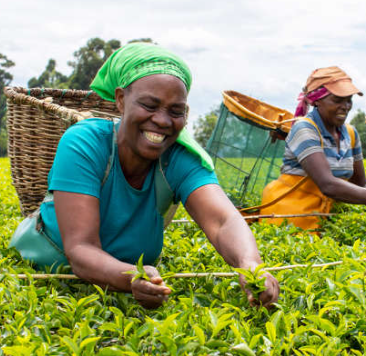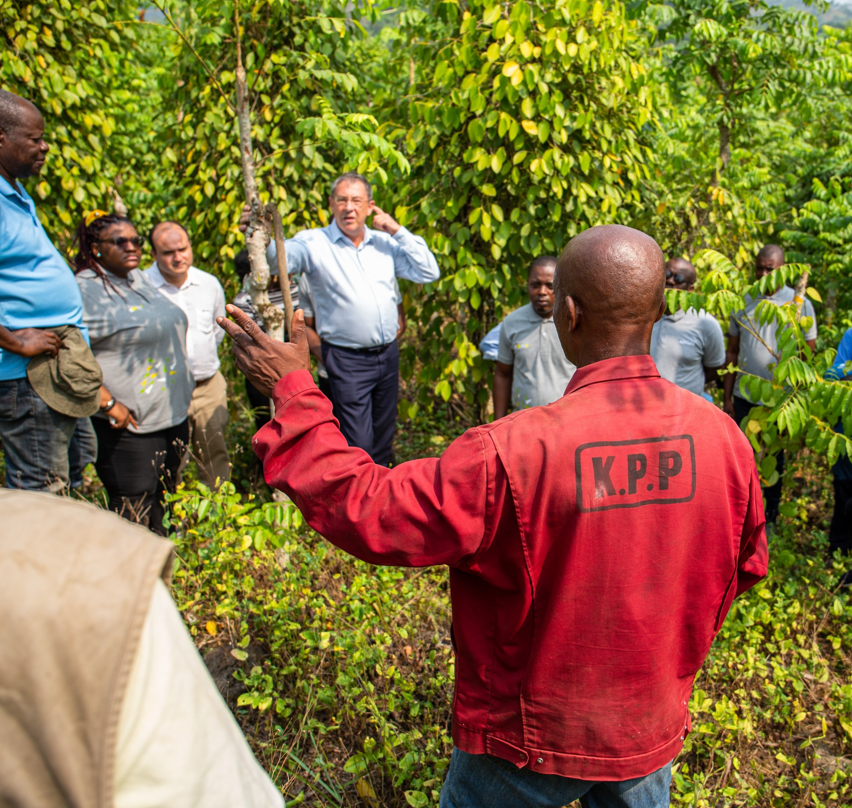Written by George Mbithi of Palladium

©Palladium/Moses Sitati
USAID’s Kenya Investment Mechanism (KIM), implemented by Palladium, has mobilized USD 113.4 million for enterprises in Kenya and East Africa in just over two years. Roger Bird, Chief of Party for the KIM project, says:
We are excited to break the USD 100 million mark, helping enterprises access the capital they need. We are even happier to go beyond our target of USD 76 million for our first two years.
Much of KIM’s focus is on the agriculture sector, which contributes one-third of Kenya’s GDP and makes up nearly 70 percent of the country’s employment. But despite the prevalence of agriculture and its contribution to the nation, overall lending by financial institutions (FIs) to agriculture businesses remains very low. According to data from the Kenya National Bureau of Statistics, while total lending by FIs has increased from USD 31 billion in 2016 to USD 38 billion in 2019, lending to the agriculture sector has declined from USD 0.9 million in 2016 to USD 0.8 million in 2019 – an 11 percent drop.
One of the factors contributing to low lending is the perception that the sector is too risky. For instance, most farms in Kenya are rainfed, making them vulnerable to erratic weather patterns. The ever-worsening climate crisis and inadequate deployment of the best technology to guarantee high production has only served to scare potential investors away.
But over the last two years, KIM has instituted measures to address these market deficiencies. Through smart incentives and demand-driven technical support, KIM has partnered with 20 FIs and 40 business advisory service providers to increase lending to agribusinesses and smallholder farmers.
The Road to USD 100 Million and Beyond
One of KIM’s most successful investments and largest transactions in 2019 was a USD 27 million, multiple stakeholder investment in Komaza, a tech-enabled, sustainable forestry company that is revolutionising the wood industry in Africa through its innovative smallholder platform. But Komaza is just one of many investment vehicles that have helped KIM smash through their initial two-year goal of USD 76 million. John Kashangaki, KIM Deputy Chief of Party, says:
Our support to enterprises through coaching, mentoring, and investor introductions has proven successful. These forums provide a platform for enterprises to meet and access private equity investors.
Although partner FI disbursements have dropped 60 percent since the onset of the COVID-19 pandemic, KIM is doubling down on engagements with commercial banks, providing an increased incentive to help reactivate their lending during the pandemic. Roger Bird adds:
We are contracting an additional 20 business advisory service providers, which will further expand our reach to support enterprises during this time of COVID-19. We will also increase the number of our partner financial institutions.
David Njiru, Chief Business Officer, Juhudi Kilimo, one of KIM’s partner FIs, says:
This project has come in as a strong and reliable partner in our journey to expand to new markets. The incentive fees enabled us to open four new branches in counties where there is enormous demand for agriculture-related financing.
Njiru adds that Juhudi Kilimo has increased their total lending to the agriculture sector from USD 14 million in 2018 to USD 20 million in 2019.
We expect to see our portfolio in this sector increase further over the coming years.
With a goal of mobilising USD 400 million by 2023, the team is energised by breaking the first USD 100 million and plan to continue building upon their successes, deepen efforts to build sustainable lending practices, and pivoting transactions into additional market transformation.
According to Roger Bird, the team knows the project’s value-add goes well beyond incentive fees for financial institutions and transaction advisors.
The real value, and what gets us excited, is when capacity building and co-led innovation come together for real change. Seeing transaction advisors develop meaningful relationships with finance providers – this is when real transformation is taking place.
USAID’s Kenya Investment Mechanism, implemented by Palladium, is a five-year program designed to unlock $400 million of investments for targeted areas of agriculture, energy, infrastructure, health, WASH, the Women’s Global Development & Prosperity (W-GDP) and Prosper Africa initiatives.
This article was originally published by Palladium.

